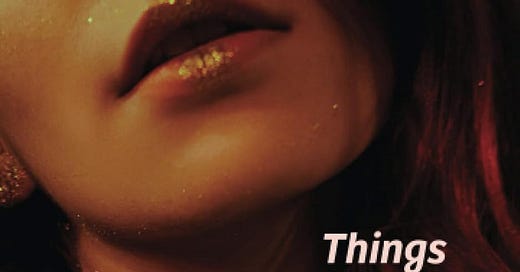Most of the characters in Danila Botha’s pulsating and often moving third collection of short fiction, Things that Cause Inappropriate Happiness, are young and seeking direction and/or meaning in a world offering a dizzying array of options. Botha’s typical protagonist is a young woman on the cusp of adulthood, having reached a vulnerable stage in life where significant decisions loom, along with the realization that she’s facing those decisions alone.
The dilemmas that Botha’s characters face most often have to do with career choice, artistic practice, love or body image. Nessa, the narrator of “Soul Mates,” recalls the youthful shenanigans of her best friend Rivka, who preferred to be called “Rickie.” Both were raised Jewish, though Rickie’s parents allowed their daughter some latitude, which she exploited by dressing provocatively, drinking to excess and hanging out with non-Jewish friends. By contrast, Nessa’s family was more traditional. Nessa and Rickie remain besties until late one night—after their other friends leave them alone together in a park, Nessa tells Rickie she’s beautiful and the two kiss. But after the kiss the friendship is not the same, and they drift apart. A few years later, Nessa and Rickie meet. By this time Nessa has embraced her sexuality and has a girlfriend, and she’s astonished to discover that her free-spirited friend has embraced Orthodox Judaism.
The young narrator of “Blasting Molly Rockets” has adopted a “badass” persona as the lead singer of her band, consuming hard drugs and sometimes sleeping rough outdoors, though in the process of building her persona, she’s alienated her family. After signing a record deal and watching the money begin to flow her way, she can’t disguise her fondness for life’s comforts, the things she misses—such as a bath with all the hot water she can use—but also can’t escape her guilt over losing touch with her parents.
And in “Don’t Look Back,” the narrator writes about her great aunt Mara, a sculptor working in bronze, who teaches her great-niece what it means to value yourself and never compromise with your art.
Occasionally, Botha’s fiction veers into the realm of fantasy. In “Able to Pass” Kayla’s Bubba (grandmother), a Holocaust survivor, tells Kayla a story about her childhood, when she and her sister Golda made golems (replicas fashioned from mud or clay) as a means of evading the Nazis. The scheme was not successful and many members of the family did not survive the war. Kayla (“an art major who minored in accounting to keep her parents happy”) is touched by the story and, without telling anyone, uses her skills to make the golems to protect her grandmother’s family, with surprising results.
In the title story, Lielle has been diagnosed with rheumatoid arthritis and is taking prednisone. On a field trip to an art supply store with some of her students, she ventures into the basement where the discounted items are kept, and experiences a hallucination in which “an older man in a charcoal grey suit and a black fedora,” with a wave of his hand, transports her back to 1998, a time when her health was perfect, her stomach was flat and she was loved unconditionally by friends she thought would always be there.
Botha’s stories tend to be short and briskly paced (there are 32 separate pieces in the 230-page book). Some are snapshots representing a critical moment in a character’s life. Others, despite their brevity, cover decades. Throughout the book, a theme emerges of the past reaching into the present and making itself felt, either through the revelation of truths previously hidden or with a swelling of emotion as characters grope toward a new or clearer understanding of one another.
In Things that Cause Inappropriate Happiness, Danila Botha writes of the tenacity of the human heart, its battle to remain true to itself. This is a book brimming with raw emotion that touches the reader deeply.
About the Author
Danila Botha is the critically acclaimed author of short story collections Got No Secrets and the Trillium Book Award, Vine Awards, and ReLit Awards finalist For All the Men (and Some of the Women I've Known.) Her award-winning novel Too Much on the Inside was published in 2015. It was optioned for film by Pelee Entertainment in 2023. She is currently working on her new graphic novel and has a new collection of short stories, and a new novel coming out soon with Guernica Editions.
About the Reviewer
Ian Colford was born, raised and educated in Halifax. His reviews and stories have appeared in many print and online publications. He is the author of two collections of short fiction and two novels and is the recipient of the Margaret and John Savage First Book Award for Evidence.
Book Details
Publisher : Guernica Editions (April 1 2024)
Language : English
Paperback : 230 pages
ISBN-10 : 1771838701
ISBN-13 : 978-1771838702






Excellent review.